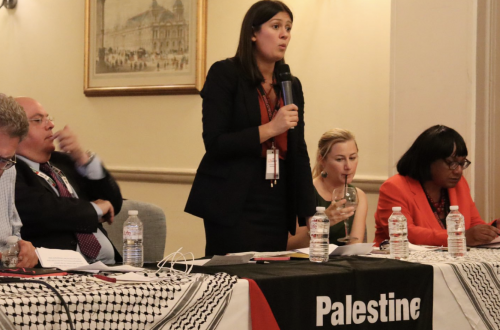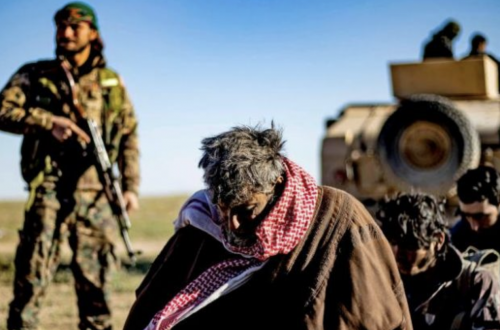As you may have seen, Anne Marie Waters’ leadership candidacy has been confirmed by UKIP’s NEC. I’ve noticed more than one liberal commentator claiming that she has changed greatly over the past few years. I think the degree of change has been overestimated – and also think that this impulse to overstate the shift in her views reflects the difficulties facing people (including some who defended AMW vigorously back in 2013) when trying to negotiate the boundary between liberal secular values and bigotry. Maybe it’s uncomfortable to acknowledge that you didn’t spot a problem initially. The danger isn’t just in crossing the line from liberalism to anti-Muslim sentiment – as many would say Waters has done. If you steer too clear of it you may be falling into a parallel problem: becoming an apologist for Islamism, glossing over genuine concerns – and fuelling the far right in the process. The grooming gang issue provides a clear example of these dangers.
Nazir Afzal writes well about this problem, engaging directly with the cultural and religious background of the perpetrators, and issuing a robust challenge to some in his own community, while also reminding readers that Islam is not a monolith. I was less sure about Sarah Champion’s intervention in The Sun. The headline was quite inflammatory.
British Pakistani men ARE raping and exploiting white girls… and it’s time we faced up to it
It also didn’t seem fully necessary. To me there has been a sense of déjà vu in the recent discussions of this issue. I thought we’d had these conversations back in 2012. Yet the opening of Champion’s article suggested she was breaking some genuine taboo.
BRITAIN has a problem with British Pakistani men raping and exploiting white girls.
There. I said it. Does that make me a racist? Or am I just prepared to call out this horrifying problem for what it is?
The implied reader is cheering Champion on as she breathlessly creates a sense of drama through revelation. This is frustrating because the later sections of the article seem absolutely fine – drawing attention to what needs to be done, and placing the largely Pakistani grooming gangs within their broader CSE context.
Sarah Champion’s article was singled out for praise by Trevor Kavanagh is his controversial recent piece on The Muslim Problem. Here too we find the suggestion that no one is talking about Muslims/Islam. (This is particularly bizarre given that he is writing in the Sun.) Muslims, according to Kavanagh, are a problem – later in the article he does use the phrase ‘some Muslims’ but there is plenty here to reinforce any anti-Muslim prejudice the reader may harbour.
But there is one unspoken fear, gagged by political correctness, which links Britain and the rest of Europe.
The common denominator, almost unsayable until last week’s furore over Pakistani sex gangs, is Islam.
Thanks to former equalities chief Trevor Phillips, and Labour MPs such as Rotherham’s Sarah Champion, it is acceptable to say Muslims are a specific rather than a cultural problem.
The article ends:
One day soon, if Philip Hammond and Liam Fox are right, we will be back in charge of immigration.
What will we do about The Muslim Problem then?
Not surprisingly this caused outrage from both Jews and Muslims through its echoing of the sinister phrase ‘The Jewish Problem’ (or The Jewish Question). The capitalisation seems to actively invite this comparison.
Kavanagh has plenty of form – it was he who targeted Channel 4’s Fatima Manji for reporting on the terrorist attack in Nice while wearing a hijab.
There was something else I particularly disliked in Kavanagh’s closing question. It’s sly and insinuating – it allows space for the reader to come up with different answers, some of which may go beyond the narrow question of immigration. There’s something gleeful in the prospect – finally, we can devise a solution free of outside interference. There’s little space in that ‘We’ for any Muslim reader, no matter how liberal.


